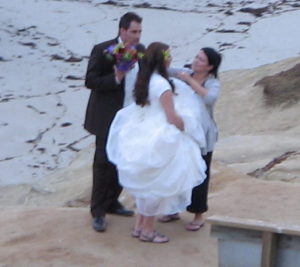Discovering that your spouse cheated on you triggers strong reactions. You find yourself experiencing anger, threats, fear, confusion and other strong reactions.
After the initial reactions between you and your spouse, the emotions will begin calming down. The calming occurs unless you or your spouse do an ‘instant replay’ that keep the fireworks going.
When the emotions do calm down, you’ll be facing many questions and many choices. You will need a way of dealing with what happened.
You’ll find some way of dealing with the cheater. The affair changed things, as you now consider ‘HOW’ it’s changed. You can choose to either end the relationship or to continue your relationship with each other.
In the event that you choose to continue the relationship, eventually, you will have to deal with forgiveness.
One of the questions that is likely going through your mind is “Should I forgive them?“Although people talk about forgiveness, few understand what it is and how to do it.
Choosing not to forgive and the consequences
You can choose to either forgive or not forgive. Either choice is a valid option.
Just because the cheater asks for your forgiveness, doesn’t mean that you have to give it to them. Many cheaters want to ‘move on’ without accountability rather than to work through the forgiveness process.
Real forgiveness brings with it accountability. Few cheaters understand this. They want a ‘get out of jail free card’ that doesn’t have any accountability with it.
When you choose to not forgive, you’re choosing to continue holding onto the pain. You are also choosing to hold onto the memories of what happened.
When you have the memories of what happened and the pain, it sets up a perpetual hurt machine that continues replaying the affair over and over in your mind. Replaying such pain is like having your car stuck in the mud, the wheels may keep turning faster and faster, but you are not getting anywhere.
There is no forward momentum. You need time to pull yourself together. The longer you stay in the situation, the more stuck you become in the relationship.
Holding onto the pain leads to you believing that you are a martyr. The danger of being the martyr is that it can lead to you assume a position of self-righteousness, where you are the good party and the one who hurt you is the ‘bad’ party.
Although you may believe this, those around you see what happened and how you are choosing to hold onto the pain. As long as you hold onto the pain, you believe that you can continue blaming the cheater for what happened.
As long as they are painted as the bad one, you don’t have to make changes.
On the positive side, holding onto the pain can help you identify what your issues with the affair are. Pain is actually a protection of life and when we feel it, it’s telling you something. You have to discern what the pain in telling you.
There are many insights you can gain from holding onto the pain and listening to what it’s telling you. Some people forgive too early, since they don’t know what they’re actually forgiving. They just know that they want out of the pain.
You may need to hold onto the pain in order to obtain a clear idea of what you are forgiving. Whether it is the pain of betrayal, the pain of being lied to, the torment of your spouse being with someone else, the letdown of your marriage vows and plans turning into a sham.
Knowing where the hurt is coming from helps you know what you need to forgive, whether it is betrayal, lies, disappointment, etc.
Choosing not to forgive erects a restrictive barrier in the relationship. That barrier becomes a wall. It keeps the two of you from being close to one another. It limits the closeness. It constantly keeps the two of you from being connected with each other.
In the initial days after finding out about the affair, you may need distance. After the issues have come out into the open, the barriers can become a prison that forever keeps them or anyone else from getting emotionally close to you.
The wall protects your heart, but it also keeps people out. Tearing down the walls built by unforgiveness is a long process.
Holding onto the pain and hurt brings its own burden. Many people, including you, may not be able to carry that kind of pain for long periods of time.
Holding onto the pain brings consequences in terms of having a strained relationship, worsening health problems, fragmented spirituality and losing your peace of mind. There are many psychosomatic disorders that worsen when you hold onto such pains.
Some of those disorders include high blood pressure, ulcers, diabetic conditions, skin irritations, cancers, and a host of other diseases. The affair didn’t cause these conditions, but choosing not to forgive makes them worse.
Having poor health is not much comfort compared to having improved relations with your spouse. There’s a price tag associated with you choosing not to forgive.
Holding onto the unforgiveness turns into a ‘grudges’ and resentments. The grudge gives you perceived power in the relationship, although the price tag for that power is costly.
You may think it gives you control over the cheater, but the reality is that it doen’t. The whole idea that by holding onto pain, you have control over those who hurt you is akin to magic superstition of a mental voodoo doll that you think you can inflict pain on according to your whims.
You may assume that it hurts them when you don’t forgive them. In the initial days, it does, but over time, the amount of that influence lessens. It eventually gets to the point that your pain doesn’t impact them at all.
If you do choose to forgive them, there’s no rule that says you have to do it right away. It may be helpful letting them stew in the pain of their poor choices for a period of time. Let’s say that you choose not to forgive, what does it do for you?
Forgiving the act versus forgiving the person
Once you decide to forgive, there other choices you needing consideration. When you decide to forgive, what or who is it that you forgive?
You may have never considered the question of whether you forgive the cheater or the cheating. The answer you choose can determine whether you continue suffering or if you let your spouse back into your life.
The act or behavior of infidelity should not be forgiven. It is not the forgiveness of the act that brings closeness back to the relationship. What brings closeness to the relationship is when you forgive the person.
The only thing that can be forgiven is the person. You can only forgive the adulterer/adultress. What they did was wrong.
You can forgive them, but not forgive their actions. Forgiveness is choosing not to resort to paybacks for the affair. It’s letting go of the resentments that may have formed. You choose to let them back into your life and your heart.
Who they are and what they did are two separate things. There is a big difference between their person (who they are) and their performance (what they did).
Although today’s society tries blending the two, they need to be kept separate.The confusing of these two concepts is one of the reasons that people don’t understand forgiveness.
Who you are is MORE than what you do. Society often equates person and performance (person = performance). You will need to challenge that assumption if you hope to forgive. As long as you equate who they are with what they do, you will find forgiveness a struggle. The two will need to be separated.
You need to let them know that they are acceptable, but that cheating is not. You love them, but hate what they did.
They aren’t allowed to cheat, that cheating is not tolerated, nor will be in the future.
For example, if I acted like a cow, it does not make me a cow. I can moo like one and bellow like one, but I am not a cow.
Likewise, the cheater acted in a way that was not acceptable. It didn’t change who they were, they made a poor choice. The cheater as a person is still lovable, acceptable and can be forgiven, their actions are not so.
You allow them back in your life, but you do not erase the slate. They need to know that their choices hurt you and brought consequences. It’s not up to you to punish them, although you will hold them accountable for their actions.
They’ll have to talk to you more, communicate where they are going, and open up about more of their needs. This is part of accountability.
When you forgive the person, you let go of the barriers keeping you two apart. You allow them back into your heart and your life.
You allow the two of you to begin relating to one another. The cheater may have trouble with this idea, but that is fine. You may have trouble with it at first as well. Learning to forgive takes time. Some days you may be better at it than others.
Forgiveness is also a process. Since we are human, it is easy for us to take up offenses and resent the cheater. You will need to let go of the desire to punish the cheater every time this happens. Some days you will be able to and some days, it may be a struggle. The cheater may have difficulty separating their person from their performance as well. They may be confused as to how you can forgive them, but not the what they did. If they have the idea that forgiveness is a ‘get out of jail free’ card, it will be a struggle for them.
Many people have trouble separating the two concepts.
Here is what happens when you try to forgive the cheating rather than the cheater.n Choosing to forgive ‘the act’ of infidelity, brings problems.
Choosing to forgive the act often encourages it to happen again. It’s as if you erased the act, cleaning the slate and behaved like the affair never happened.
To the cheater, the slate has been cleaned, and they may fill it up again. Choosing to forgive the act, only serves to erase the latest episode of what they did.
It also sets up some mental confusion for you. If you want to stay mentally consistent in viewing infidelity as an unacceptable thing, you will need to be consistent in separating out the cheater from the cheating.
Trying to forgive the act, without forgiving the cheater creates inconsistency. Trying to forgive the act also leaves the cheater still feeling unaccepted. Remember, you are wanting to get back into relationship with your spouse, not to change your stance on cheating.
Consequences of forgiving the act
Forgiving the cheater allows your relationship to be restored. When you forgive the person you can still hold them accountable for their actions.
It is not about punishing them over and over again. They made a bad choice, they admitted it, they regret it and now they are trying to make things right. To continue punishing them over and over again for one bad choice only creates more problems.
You will need to let the cheater know that the cheating, lying, etc. hurt you and hurt them. Their choice started a series of events that can not be undone, especially if someone got pregnant or was scarred by events.
Those scars and pregnancies don’t go away. They’re part of the consequences of poor choices. If the cheater caught a disease from the affair, there will be changes in your private lives. Forgiveness won’t make such consequences go away.
The connection between the behavior and your response needs to be crystal clear. You love the cheater, but HATE what they did. There is no place for romancing what happened.
It wasn’t pretty. The cheater needs to HATE what they did. With many cheaters, if they do not learn to HATE what they did, they may return to that behavior pattern.
When they romanticize the affair, they haven’t learned to hate what they did.
Punishing them is not the answer. When I read about all the spouses who punish cheaters, I cringe.
I know that that does not deal with the root issue and only sets the stage for more problems. It is not up to you to punish the cheater. Allow their conscience to do that, not you.
As they have deal with the consequences, the pain brings changes on its own, without you helping it along. Forgiving the cheater (their person) allows their conscience to ‘turn on’ and begin bringing transformation to them.
Pain brings changes. Letting the cheater out of the pain often brings incomplete changes in their lives and yours.
Understanding the dynamics of forgiveness is important in knowing how to handle the affair and improve your marriage.
For more about forgiveness order my video, “Forgiveness: Stop the Pain, Tear down the Walls and Remove the Roadblocks“. The video goes into even greater detail and how to steps in forgiving.
Best Regards,
Jeff
















5 Responses
I wonder how this applies to a man who has lied and had a double life for nearly 33 years? Is it the adultery that needs to be forgiven and not the person? He is really skilled at creating a false front.
Zaza,
You pose a tough question there. In my experience, it is only the person that can be forgiven, not the acts. The adultery is never acceptable. This sounds harsh, yet it works. It is also theologically sound. It would take me a LONG series of posts to explain it in detail, which is part of the reason I am working on an e-book focused on forgiveness where I explain what it is and what it is not. The mistake people often make is blurring the distinction between the person and their performance (behavior). When we blur the two, it is hard to grasp forgiving one and not the other. Your husband may still be worthy of your love and attention, yet his acts are not. You can learn to love him, yet hate what he does. If you hate him (his person), it would be hard to have any basis of future relationship. You can still love him, yet HATE what he has done, what he has said, and the damage it has brought. Much like a person has to learn to hate the sin and love the sinner, here you forgive the cheater, but not the cheating behavior.
I hope this brief explanation helps clear it up a little better. If not, feel free to ask about parts that you remain unclear on.
I honestly don’t believe I gave much thought to the idea of forgiveness before discovering my H’s affair. Â It wasn’t something I dwelled on. Â I had been on a spiritual quest for several years and naively thought forgiveness wasn’t a major issue in my life. Â After D-Day, it became a vital element in my growth process. Â I’m still in the process of learning about me, or maybe defining me is a better description, but I understand so much more now.
We learn to walk by falling down, getting back up, making adjustments, and taking another step forward. Â Toddlers do this so well. Â They don’t question why they fell, they just get up and try again. Â They have faith in the process. Â Maybe this is what Jesus meant when he spoke of becoming as little children. Â Maybe we need to put more faith in the process and learn the power of forgiveness in order to live a happier, more fulfilling life.
These are some of the things I’ve personally learned about forgiveness:
I’ve learned that forgiveness is for you. Â You don’t do it for the other person. Â It isn’t about letting the other person off the hook, it’s about letting yourself off the hook. Â The kindest thing you can do for yourself is to forgive what you believe to be unforgivable. Â
Forgiveness helps us see a situation differently. Â It allows us to let go of fear and anger so we can better understand and have compassion for ourselves and others. Â It doesn’t help me one iota not to forgive.
Resistance to forgiving keeps us stuck in a cycle of distrust, anger, and continual suffering. Â It leaves no room for peace or love to establish a foot-hold in our life.
When we allow the past actions of another to determine our peace and happiness today, we are telling ourselves that we are incapable of compassion, that there is no love and understanding within us that we can share with another–let alone ourselves,  and more importantly, that we are powerless to change it.  We limit ourselves by our beliefs and by what we  focus on and look for.  It then becomes our reality, and the cycle repeats.
When we allow our own past actions to determine our peace and happiness today, we are telling ourselves that we are unworthy of love and compassion. Â And we punish ourselves for our believed unworthiness. Â We all do it. Â We all carry emotional baggage that we repeatedly use against ourselves. Â Above anything else, we need to have a loving relationship with ourselves. Â We need to forgive ourselves…for all the real and imagined things we’ve said and done to others–and to ourselves.
Forgiveness isn’t an emotionally charged, all-consuming event – it’s a decision. Â It’s putting one foot in front of the other. Â It isn’t about changing your past, it’s about changing your future. Â You make a decision to no longer keep the pain alive. Â You make a decision that you will no longer be the source of your suffering. Â You make this decision over and over again until it becomes your reality, and the cycle repeats.
blueskyabove,
I enjoyed reading your response to the post on forgiveness. Forgiveness is about a choice and for you. Many people do not get that. They assume that forgiveness is about ‘condoning’ or ‘approving’ of what the cheater did. That is a dangerous assumption, yet one that many people have. They view ‘forgiveness’ as a kind of get out of emotional jail card. It is not that, yet popular culture has left many people viewing it that way.
You have learned some tremendous insights regarding forgiveness and how it changes perspective. Thank you for sharing those. The resistance to forgiveness is often where people get stuck. They choose to hold onto the hurt/wound and then wonder why they feel stuck and do not make any progress. They somehow think that by choosing to hold onto it, it gives them power over the cheater. It does not give power, but instead takes away power and paralyzes them emotionally.
I agree with Blue Sky …and you ….I have practiced this throughout my life and our marriage. One of the problems that seems to have been one of the ‘roots’ of trouble is that from the beginning I would perceive something was troubling my husband or some offense but he refused to disclose what it was and even IF it was something I did.
I believe he refused to deal with or learn to deal with whatever it was because he was wanting a ‘reason’ to justify departing in head…then heart from marriage …not just marriage to me but any kind of ‘obligation’ to anyone so that he could justify creating and seeking to have a separate life.
He does not even know why this is. I think the Bible does a good job of expositing why people reject commitment. He has been successful in having many MANY superficial relationships …even long term ones over his lifetime …before , during and now.
This kind of ‘freedom” from the responsibilities that come along with a deeper relationship have not apparently inhibited getting his short term ‘needs ‘ for company or fun unmet. That may be the ‘danger’ of such a fluid society which offers all kinds of benefits to those who ‘qualify’ for ‘perks’ because of looks, positions of power and influence and their bank account.
Unfortunately sooner or later the truth about sin will find you out does turn out to be true and real. His choice to live apart from our family is taking it’s toll …not so much upon himself as yet…but still effects all who love him and have much invested in a relationship with him as husband and father known so long as a man he was not in truth.
One thing that continues to challenge us all is that he will appear to make an effort to care for us …but withdraw and disappear behind some excuse.
He has gone now more than a month without any contact with the family he claims to love …making plans to see my daughters then making excuses…it is hard on us all.
It MAY be his own inability to deal with all of the mess he has made but more it appears he is still choosing to keep his contacts with the other children rather than do what is right and healthy for our family and his own conscience.
We have made overt efforts to invite him , include him and to extend forgiveness…He does not want it …maybe he does not really believe he has done anything wrong and is not responsible to any of us that he has hurt.
As I said I have done much study of this issue of forgiveness as Blue Sky has mentioned…I have had lots of practice of forgiving and leaving offenses in the past …here it seems very much like it is a daily 70 x 70 thing as he keeps repeating his methods of abandoning those things he has said he is sorry for neglecting and he keeps on seeming to deliberately destroy the relationships he SAYS he are so important to him to heal and grow!
It is a lot like having a scab of a healing wound ripped off ….day after day.
Some people deal with this by divorce or moving away …I hope for a marriage restoration so I don’t see these as my options…and I have no resources to do so even if I wanted to ….I am older and have little strength or resources to move away ….so I hope and continue to work things out with the Lord and hope to learn as I go to grow .
Thanks for your sharing ….both of you.